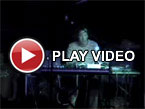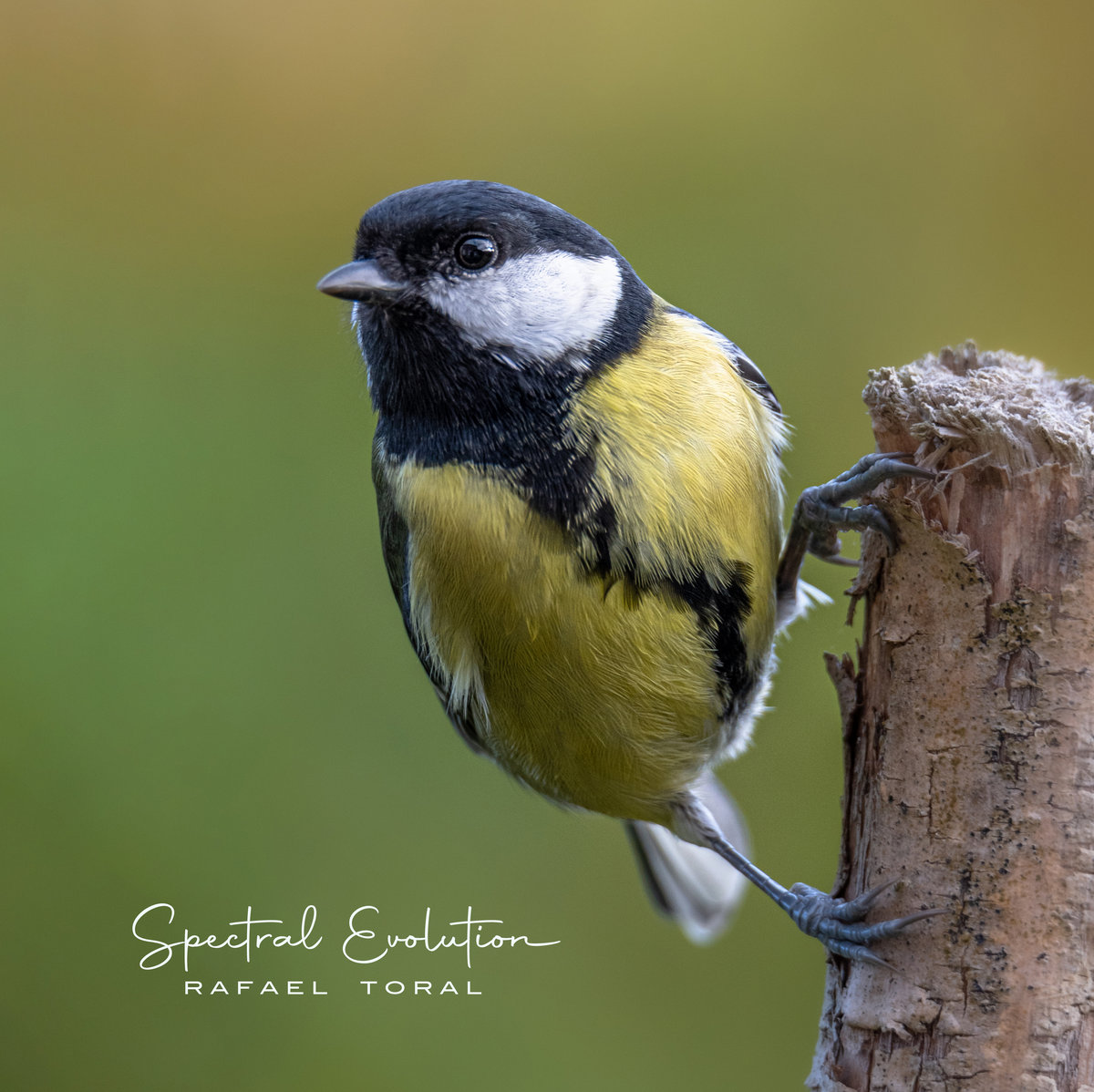 Before I heard this album, I mistakenly believed that I had a reasonable familiarity with Rafael Toral's oeuvre, as I had heard and enjoyed a handful of his classic guitar-era albums such as 2001's Violence of Discovery and Calm of Acceptance. That said, it had been a while since I had kept tabs on his work, so I was quite curious to hear what made this "quintessential album of guitar music" exciting enough to reawaken Jim O'Rourke's decades-dormant Moikai label. As it turns out, absolutely everything about Spectral Evolution feels like a goddamn revelation to me and I am now kicking myself for sleeping on Toral's post-guitar Space Program-era of experimentation with self-built instruments. The psychotropic omnipresence of those self-built instruments makes it amusingly misleading to call Spectral Evolution Toral's return to guitar music, but if the presence of some recognizable guitar sounds lures more listeners towards this one-of-a-kind work of genius, I believe that claim has served a worthy purpose. Listening to this album was like hearing classic Merzbow or My Cat Is An Alien for the first time, as Toral plays entirely by his own set of rules and succeeds spectacularly.
Before I heard this album, I mistakenly believed that I had a reasonable familiarity with Rafael Toral's oeuvre, as I had heard and enjoyed a handful of his classic guitar-era albums such as 2001's Violence of Discovery and Calm of Acceptance. That said, it had been a while since I had kept tabs on his work, so I was quite curious to hear what made this "quintessential album of guitar music" exciting enough to reawaken Jim O'Rourke's decades-dormant Moikai label. As it turns out, absolutely everything about Spectral Evolution feels like a goddamn revelation to me and I am now kicking myself for sleeping on Toral's post-guitar Space Program-era of experimentation with self-built instruments. The psychotropic omnipresence of those self-built instruments makes it amusingly misleading to call Spectral Evolution Toral's return to guitar music, but if the presence of some recognizable guitar sounds lures more listeners towards this one-of-a-kind work of genius, I believe that claim has served a worthy purpose. Listening to this album was like hearing classic Merzbow or My Cat Is An Alien for the first time, as Toral plays entirely by his own set of rules and succeeds spectacularly.
After being properly gobsmacked by one of the album's early "singles" ("Fifths Twice"), I was not sure that I was even listening to the right album when I finally played Spectral Evolution for the first time. That feeling quickly dissipated after the first minute, but the album deceptively begins with Toral casually improvising around a few jazzy chords.on a relatively clean and effects-free electric guitar. It does not take long at all before that pleasant motif is absorbed by an otherworldly cacophony of whining harmonics and squirming electronics, however, and the wild ride that ensues leaves those jazz chords so far in the rearview mirror that they feel like a memory from a previous life. If someone held a gun to my head and demanded that I coherently explain what was happening in the album's opening minutes, I would probably resign myself to my imminent death, but "I think an alien jungle just crash landed onto an organ mass in Mindfuck City" is probably a reasonably accurate summation…temporarily, at least. If I waited another minute or so, however, I would probably lean more towards "a group of psychotic puppets just formed a jarringly discordant marching band and kicked this Mardi Gras party into overdrive!" Consequently, it is hopeless to make any generalizations about Toral's vision for this album at all unless that generalization is something vague like "an unpredictable series of dissolving lysergic mirages dreamed up by a madman."


 I tend to enjoy damn near everything that Sweden's XKatedral label releases, but this half-disturbing/half-transcendent tour de force by co-founder Maria W. Horn still managed to completely blindside me. Panoptikon's four-part suite was originally composed for a macabre installation at the "disbanded Vita Duvan (White Dove) panopticon prison in Luleå, Sweden." Being a panopticon, Vita Duvan had an unusual circular design "to create a sense of omniscient surveillance," but that is just the tip of a very grim iceberg, as it was also known for its brutal isolation tactics as well as rampant torture and execution. While the prison mercifully ceased operations in 1979, I suspect I would've needed months of therapy to recover from Horn's installation alone, as it pulsed in synchronization with the prison's lights and the cells contained speakers broadcasting the imagined voices of the doomed prisoners. Thankfully, the decontextualized album is considerably less harrowing than its origin suggests, as its dark choral opening quickly expands into an immersive swirl of heady drones, spacy synths, and timelessly beautiful vocal motifs.
I tend to enjoy damn near everything that Sweden's XKatedral label releases, but this half-disturbing/half-transcendent tour de force by co-founder Maria W. Horn still managed to completely blindside me. Panoptikon's four-part suite was originally composed for a macabre installation at the "disbanded Vita Duvan (White Dove) panopticon prison in Luleå, Sweden." Being a panopticon, Vita Duvan had an unusual circular design "to create a sense of omniscient surveillance," but that is just the tip of a very grim iceberg, as it was also known for its brutal isolation tactics as well as rampant torture and execution. While the prison mercifully ceased operations in 1979, I suspect I would've needed months of therapy to recover from Horn's installation alone, as it pulsed in synchronization with the prison's lights and the cells contained speakers broadcasting the imagined voices of the doomed prisoners. Thankfully, the decontextualized album is considerably less harrowing than its origin suggests, as its dark choral opening quickly expands into an immersive swirl of heady drones, spacy synths, and timelessly beautiful vocal motifs.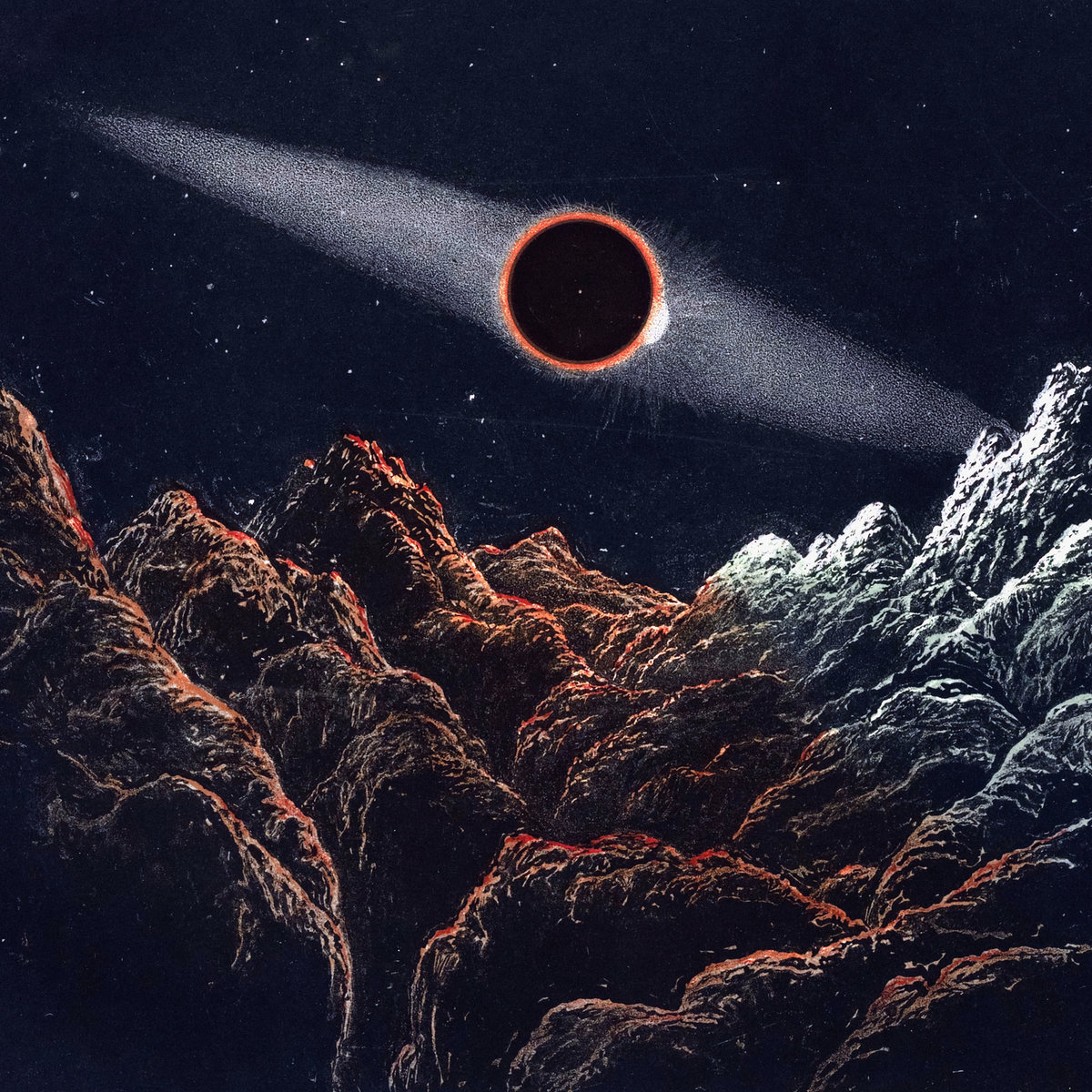 This fifth full-length from Yorkshire-based guitar visionary Dean McPhee is actually a compilation of sorts, bringing together the pieces from his out-of-print Cosmos / Ether lathe cut 7" (2022) with a couple of gems from Folklore Tapes compilation appearances. Happily, however, Astral Gold is also rounded out with a pair of new pieces and one of them ("The Sediment of Creation") easily ranks among McPhee's finest work. Given that I was already a huge fan of one of the Folklore Tapes pieces included here, that is more than enough to make this a solid release, but it is also an unexpectedly focused and thematically compelling one given the varied origins and inspirations of these songs. It is quite an aptly named release as well, as the languorously meditative and cosmic mood of these pieces seem like they would be an ideal soundtrack for any astral traveling that one might have on the horizon.
This fifth full-length from Yorkshire-based guitar visionary Dean McPhee is actually a compilation of sorts, bringing together the pieces from his out-of-print Cosmos / Ether lathe cut 7" (2022) with a couple of gems from Folklore Tapes compilation appearances. Happily, however, Astral Gold is also rounded out with a pair of new pieces and one of them ("The Sediment of Creation") easily ranks among McPhee's finest work. Given that I was already a huge fan of one of the Folklore Tapes pieces included here, that is more than enough to make this a solid release, but it is also an unexpectedly focused and thematically compelling one given the varied origins and inspirations of these songs. It is quite an aptly named release as well, as the languorously meditative and cosmic mood of these pieces seem like they would be an ideal soundtrack for any astral traveling that one might have on the horizon.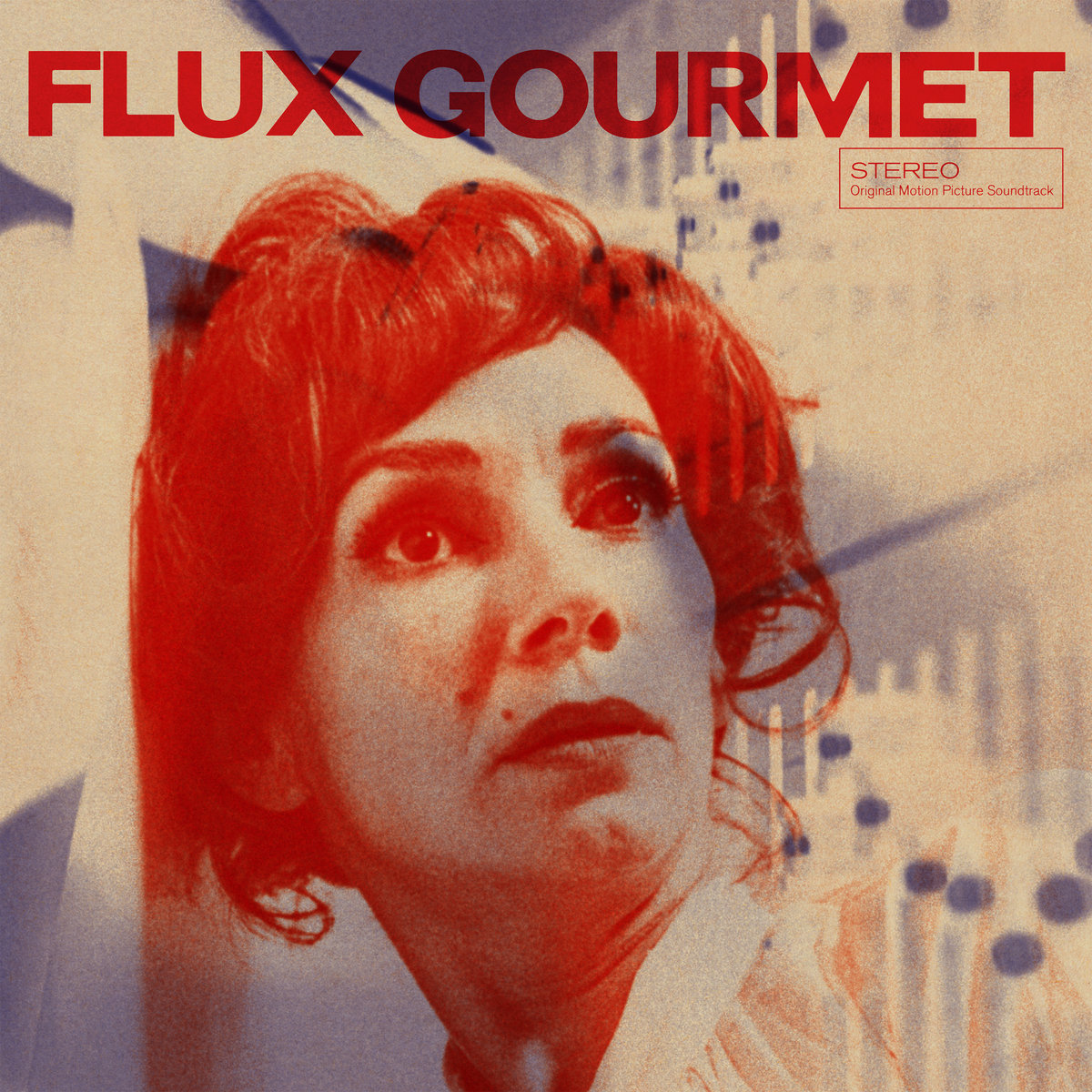 I acknowledge it is only February right now, but I believe I can confidently state that this soundtrack will be the weirdest and most mystifying new album that I will encounter this year. The film itself was released back in 2022 and follows the trials and tribulations of an imaginary performance art group during a surreal and contentious month-long artist residency. It is an absolutely brilliant and wickedly funny film (possibly director Peter Strickland's finest work) and joins similarly deranged fare like Holy Mountain in the pantheon of cinema so audaciously batshit crazy that it is hard to fathom how it was ever financed, cast, or released. As befits such a bananas endeavor, the soundtrack features a murderers' row of compelling artists from the experimental/psych fringes, drawing participants from Broadcast, Nurse With Wound, Stereolab, Neutral Milk Hotel, Swans, and elsewhere. Obviously, that seems like a solid recipe for a unique album, but it is a unique album with a twist, as the heart of it all is Strickland's own Sonic Catering Band, a shifting collective devoted to transforming the preparation of vegetarian meals into ritualistic noise performances.
I acknowledge it is only February right now, but I believe I can confidently state that this soundtrack will be the weirdest and most mystifying new album that I will encounter this year. The film itself was released back in 2022 and follows the trials and tribulations of an imaginary performance art group during a surreal and contentious month-long artist residency. It is an absolutely brilliant and wickedly funny film (possibly director Peter Strickland's finest work) and joins similarly deranged fare like Holy Mountain in the pantheon of cinema so audaciously batshit crazy that it is hard to fathom how it was ever financed, cast, or released. As befits such a bananas endeavor, the soundtrack features a murderers' row of compelling artists from the experimental/psych fringes, drawing participants from Broadcast, Nurse With Wound, Stereolab, Neutral Milk Hotel, Swans, and elsewhere. Obviously, that seems like a solid recipe for a unique album, but it is a unique album with a twist, as the heart of it all is Strickland's own Sonic Catering Band, a shifting collective devoted to transforming the preparation of vegetarian meals into ritualistic noise performances. This is the second album from the instrumental duo of Ellis Swan and James Schimpl and the first Dead Bandit album to follow Swan's killer 2022 solo album 3am. Happily, Memory Thirteen returns to the hypnagogic "witching hour" vibes of 3am, but it also marks a very compelling creative leap forward into fresh stylistic terrain. To my ears, that blearily dreamlike terrain is best described as "what if Boduf Songs scored a gig as the house band at a strip club in the Donnie Darko universe?" Needless to say, that is a very tricky and hyper-specific niche to fill, yet Dead Bandit consistently find new ways to combine hushed and haunted late-night melancholy with neon-soaked sensuousness, deadpan cool, and dreampop shimmer.
This is the second album from the instrumental duo of Ellis Swan and James Schimpl and the first Dead Bandit album to follow Swan's killer 2022 solo album 3am. Happily, Memory Thirteen returns to the hypnagogic "witching hour" vibes of 3am, but it also marks a very compelling creative leap forward into fresh stylistic terrain. To my ears, that blearily dreamlike terrain is best described as "what if Boduf Songs scored a gig as the house band at a strip club in the Donnie Darko universe?" Needless to say, that is a very tricky and hyper-specific niche to fill, yet Dead Bandit consistently find new ways to combine hushed and haunted late-night melancholy with neon-soaked sensuousness, deadpan cool, and dreampop shimmer.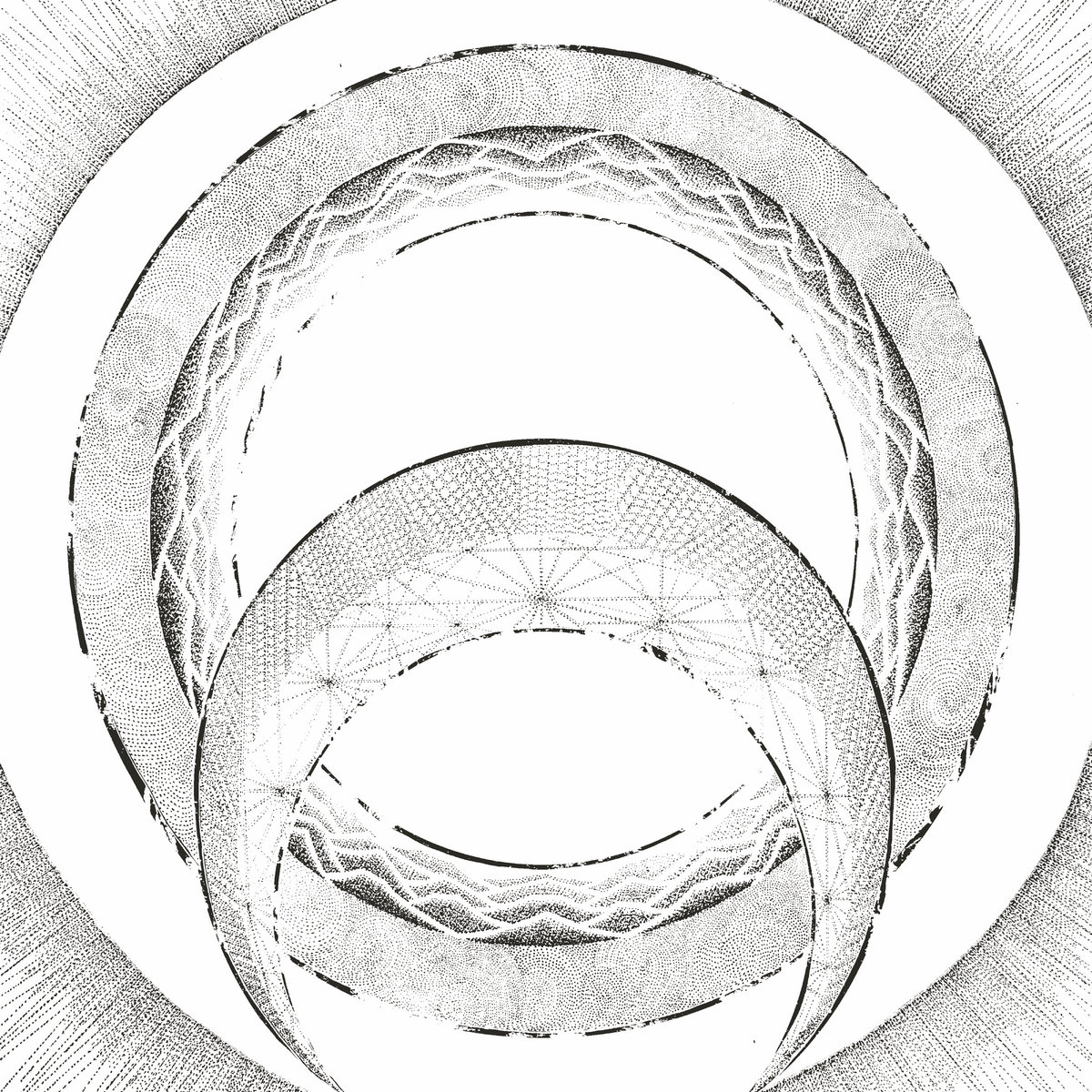 This is New York-based composer/puppeteer Tristan Allen's full-length debut and it is quite an ambitious one, as Tin Iso and the Dawn is the first chapter of a planned "shadow puppet symphony" trilogy loosely based on Wagner's "Tristan and Isolde" that has been in the works since 2015. From where I am standing, there are innumerable ways in which such an album could go wrong and they range from "forgettable score to cool puppet show" to "cloyingly precious" to "outright bombastic." Instead, however, Tin Iso and the Dawn sounds like a stone-cold masterpiece dropped by a creative supernova. Listening back to Allen's previous discography (a pair of classical piano EPs), it almost feels like this vision materialized out of nowhere, but the seeds of this puppet-centric magnum opus may have been planted more than a decade ago when Allen co-wrote a piece with Amanda Palmer in the early days of her "Dresden Dolls hiatus" solo career.
This is New York-based composer/puppeteer Tristan Allen's full-length debut and it is quite an ambitious one, as Tin Iso and the Dawn is the first chapter of a planned "shadow puppet symphony" trilogy loosely based on Wagner's "Tristan and Isolde" that has been in the works since 2015. From where I am standing, there are innumerable ways in which such an album could go wrong and they range from "forgettable score to cool puppet show" to "cloyingly precious" to "outright bombastic." Instead, however, Tin Iso and the Dawn sounds like a stone-cold masterpiece dropped by a creative supernova. Listening back to Allen's previous discography (a pair of classical piano EPs), it almost feels like this vision materialized out of nowhere, but the seeds of this puppet-centric magnum opus may have been planted more than a decade ago when Allen co-wrote a piece with Amanda Palmer in the early days of her "Dresden Dolls hiatus" solo career. Much to my surprise, my favorite tape music album of 2023 did not come from any of the usual suspects (Nonconnah, Lilien Rosarian, Ian William Craig, etc.) and instead came courtesy of this unusual collaboration between newly Parisian jazz pianist/composer Richard Sears and producer Ari Chersky. While I am unfamiliar with Sears' previous activities in NYC's avant-garde scene before his trans-Atlantic relocation, Appear to Fade is an entirely new animal altogether, as it is a series of collages built from decontextualized/recontextualized recordings of solo piano compositions and live improvisations. I can understand why this is being released as a Richard Sears album, given the fact that he played everything and has some serious jazz cred to boot, but the impact of Chesky's editing and healthy appreciation for pleasures of analog tape distortion elevates those recordings into something brilliant that feels far greater than the sum of its parts. While much of that success is due to the pair's unerring intuitions and Sears' undeniably beautiful playing, the real magic of Appear to Fade lies in how masterfully the duo were able to organically weave together looping melodies with fluid and spontaneous-sounding improvisations while evoking a mesmerizing mirage of elegantly shifting moods.
Much to my surprise, my favorite tape music album of 2023 did not come from any of the usual suspects (Nonconnah, Lilien Rosarian, Ian William Craig, etc.) and instead came courtesy of this unusual collaboration between newly Parisian jazz pianist/composer Richard Sears and producer Ari Chersky. While I am unfamiliar with Sears' previous activities in NYC's avant-garde scene before his trans-Atlantic relocation, Appear to Fade is an entirely new animal altogether, as it is a series of collages built from decontextualized/recontextualized recordings of solo piano compositions and live improvisations. I can understand why this is being released as a Richard Sears album, given the fact that he played everything and has some serious jazz cred to boot, but the impact of Chesky's editing and healthy appreciation for pleasures of analog tape distortion elevates those recordings into something brilliant that feels far greater than the sum of its parts. While much of that success is due to the pair's unerring intuitions and Sears' undeniably beautiful playing, the real magic of Appear to Fade lies in how masterfully the duo were able to organically weave together looping melodies with fluid and spontaneous-sounding improvisations while evoking a mesmerizing mirage of elegantly shifting moods. It has been a while since this duo of James Ginzburg and Paul Purgas last surfaced, but they are back with a new EP to celebrate Subtext's 50th release. Since releasing 2019's Blossoms, the pair have been quite busy with other projects, as Purgas's research played a crucial role in the release of The NID Tapes: Electronic Music from India 1969-1972 while Ginzburg has kept himself occupied with running a record label, releasing solo albums, and performing as part of "experimental supergroup" Osmium. Emptyset was never fully dormant, however, and Ginzburg and Purgas convened in Bristol this summer to shape their accumulated ideas into one of their most focused and singular releases in recent memory. It is also one of their most concise, as ash clocks in at an extremely lean 16-minutes. If this were any other project, that brevity would suggest a serious dearth of fresh ideas or compelling new material, but it is exactly the right length for a perfect distillation of Emptyset's viscerally spasmodic and pummeling percussion assaults.
It has been a while since this duo of James Ginzburg and Paul Purgas last surfaced, but they are back with a new EP to celebrate Subtext's 50th release. Since releasing 2019's Blossoms, the pair have been quite busy with other projects, as Purgas's research played a crucial role in the release of The NID Tapes: Electronic Music from India 1969-1972 while Ginzburg has kept himself occupied with running a record label, releasing solo albums, and performing as part of "experimental supergroup" Osmium. Emptyset was never fully dormant, however, and Ginzburg and Purgas convened in Bristol this summer to shape their accumulated ideas into one of their most focused and singular releases in recent memory. It is also one of their most concise, as ash clocks in at an extremely lean 16-minutes. If this were any other project, that brevity would suggest a serious dearth of fresh ideas or compelling new material, but it is exactly the right length for a perfect distillation of Emptyset's viscerally spasmodic and pummeling percussion assaults. I am almost always intrigued by the eclectic and unusual inspirations behind Marc Richter albums and this latest full-length for Thrill Jockey is no exception. The core concept at the heart of this one is the "hybridity within each and every one of us," which Richter set out to mirror through a mixture of self-created sounds and manipulated samples. Things got more interesting along the way, however, as Richter had the epiphany that his own methods are quite similar to artificial intelligence "hallucinations," which is a phenomenon in which an overloaded AI starts perceiving non-existent patterns or spewing incorrect or nonsensical conclusions.
I am almost always intrigued by the eclectic and unusual inspirations behind Marc Richter albums and this latest full-length for Thrill Jockey is no exception. The core concept at the heart of this one is the "hybridity within each and every one of us," which Richter set out to mirror through a mixture of self-created sounds and manipulated samples. Things got more interesting along the way, however, as Richter had the epiphany that his own methods are quite similar to artificial intelligence "hallucinations," which is a phenomenon in which an overloaded AI starts perceiving non-existent patterns or spewing incorrect or nonsensical conclusions.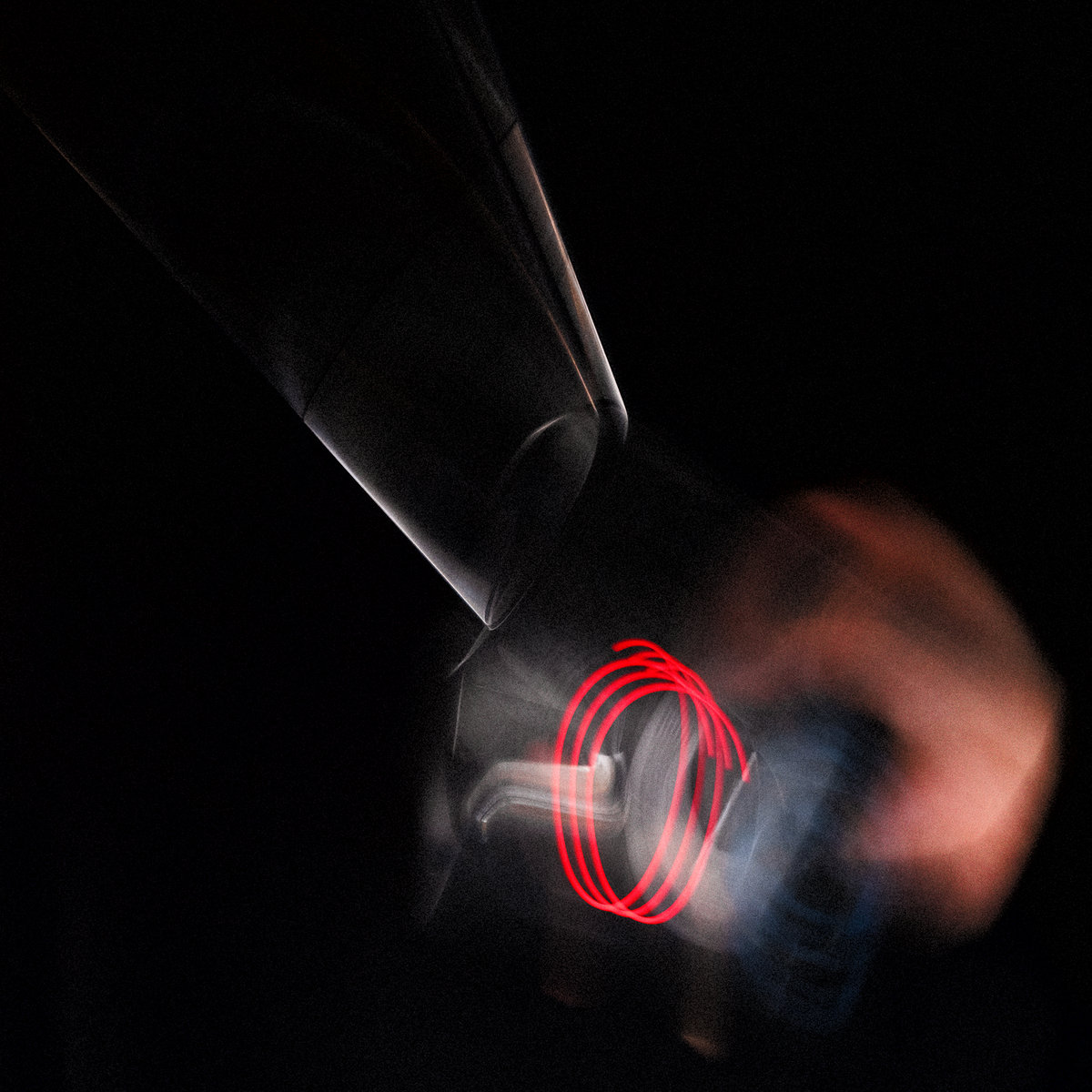 This is one of the more enigmatic and compellingly inscrutable albums that I have heard in quite some time, but I could probably say the same thing about a half dozen other Aki Onda albums at this point. This particular project began in 2006 when Onda acquired a slim handheld AM/FM radio/cassette recorder and began bringing it with him whenever he traveled: each night when he went to bed, he would turn on the radio and scan the dial in search of something interesting to soundtrack his descent into sleep.
This is one of the more enigmatic and compellingly inscrutable albums that I have heard in quite some time, but I could probably say the same thing about a half dozen other Aki Onda albums at this point. This particular project began in 2006 when Onda acquired a slim handheld AM/FM radio/cassette recorder and began bringing it with him whenever he traveled: each night when he went to bed, he would turn on the radio and scan the dial in search of something interesting to soundtrack his descent into sleep.  I have not encountered Dan Colussi's work before this album, but the Turin-born artist is a bit of a lifer, as he has been steadily releasing music and touring for the last 20 years with various Canadian bands "of varying degrees of obscurity." His solo project, Fortunato Durutti Marinetti, first surfaced back in 2020 with the acclaimed Desire cassette. This latest release is his second for Soft Abuse (and his first for Quindi) and it is something of a bold creative leap forward, as returning collaborator/producer Sandro Perri has steered the project into a more synthpop direction with the addition of synths, drum machines, and other electronic touches.
I have not encountered Dan Colussi's work before this album, but the Turin-born artist is a bit of a lifer, as he has been steadily releasing music and touring for the last 20 years with various Canadian bands "of varying degrees of obscurity." His solo project, Fortunato Durutti Marinetti, first surfaced back in 2020 with the acclaimed Desire cassette. This latest release is his second for Soft Abuse (and his first for Quindi) and it is something of a bold creative leap forward, as returning collaborator/producer Sandro Perri has steered the project into a more synthpop direction with the addition of synths, drum machines, and other electronic touches. 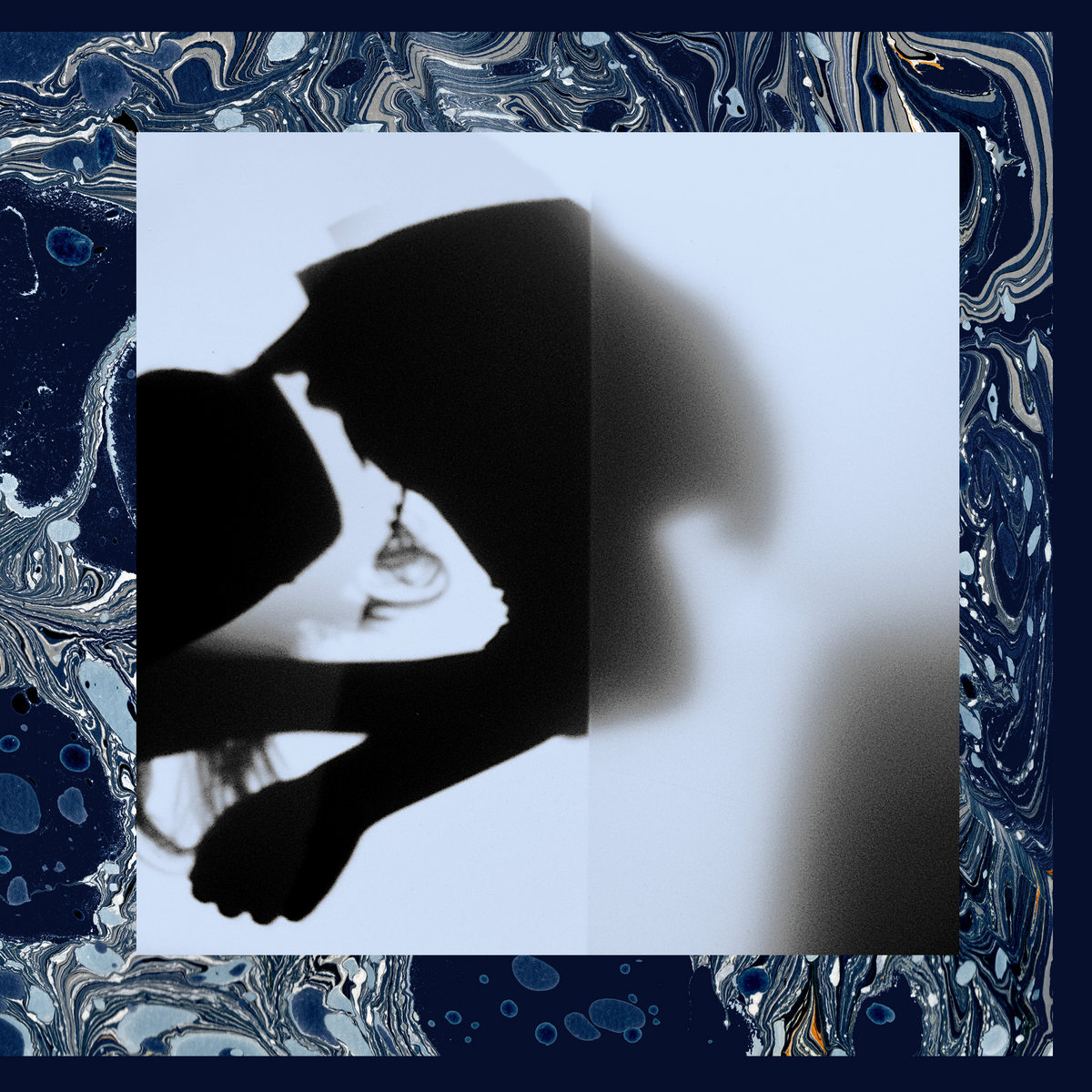 This latest full-length from NY-based composer/multi-instrumentalist Lea Bertucci features two longform Just Intonation commissions composed for small ensembles. Given that, it is no surprise that Of Shadow and Substance is a unique album within her discography, but the added participants and the non-standard tuning were not the only new elements, as Bertucci embraced a "textural approach to composition" as well.
This latest full-length from NY-based composer/multi-instrumentalist Lea Bertucci features two longform Just Intonation commissions composed for small ensembles. Given that, it is no surprise that Of Shadow and Substance is a unique album within her discography, but the added participants and the non-standard tuning were not the only new elements, as Bertucci embraced a "textural approach to composition" as well. 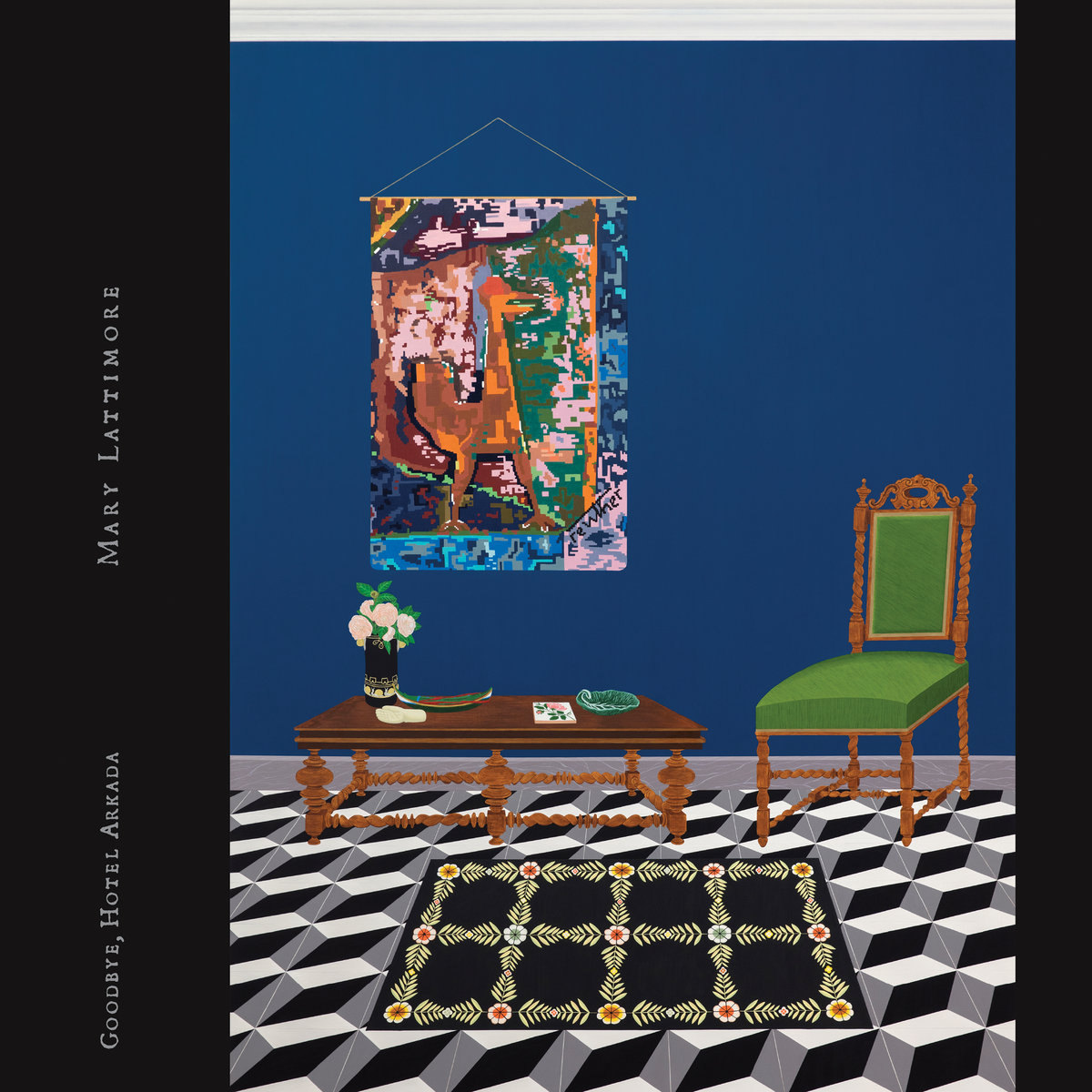 This six-song album borrows its title from a beloved Croatian hotel damningly slated for modernization, which is a fitting inspiration for an album that "celebrates and mourns the tragedy and beauty of the ephemeral." Obviously, that is an especially resonant theme these days, given the endlessly accelerating pace of change and the relentless erosion of the comforting and familiar. Lattimore has always been unusually well-attuned to such feelings, but Goodbye, Hotel Arkada is also inspired by her passions for collaboration and travel, both of which "shake loose strands of inspiration."
This six-song album borrows its title from a beloved Croatian hotel damningly slated for modernization, which is a fitting inspiration for an album that "celebrates and mourns the tragedy and beauty of the ephemeral." Obviously, that is an especially resonant theme these days, given the endlessly accelerating pace of change and the relentless erosion of the comforting and familiar. Lattimore has always been unusually well-attuned to such feelings, but Goodbye, Hotel Arkada is also inspired by her passions for collaboration and travel, both of which "shake loose strands of inspiration."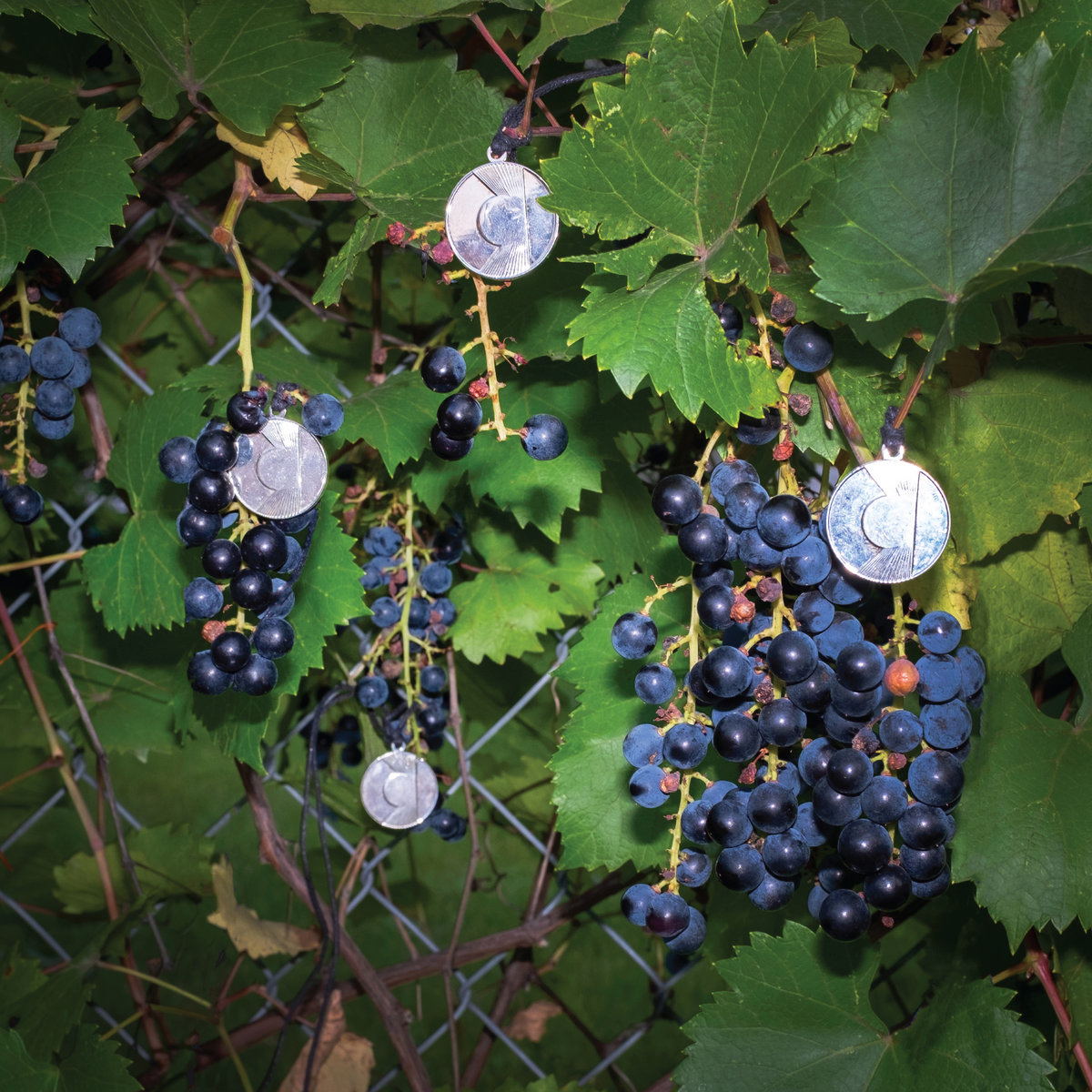 This is not my first exposure to Nathan Nelson's freewheeling Twin-Cities improv collective, but it may as well have been, as the droning kosmische psychedelia of last year's Embrace You Millions provided no hint at all of the dramatic stylistic reinvention looming on the horizon. To my ears, the band's entertaining new direction is best described as "James Chance fronts the B-52s," but the album's description goes even further and promises both "a spiritually-charged journey" and "a shit-kicking party record." The fact that Presents emphatically delivers on the latter claim is quite an impressive feat indeed, as the number of shit-kicking party records successfully recorded by shapeshifting collectives of synth and space rock enthusiasts tends to historically be quite low. To their everlasting credit, American Cream Band buck that trend quite decisively, as Nelson seems literally evangelical in his desire to make a fun and raucous party album and he assembled one hell of a killer band to bring that dream to life.
This is not my first exposure to Nathan Nelson's freewheeling Twin-Cities improv collective, but it may as well have been, as the droning kosmische psychedelia of last year's Embrace You Millions provided no hint at all of the dramatic stylistic reinvention looming on the horizon. To my ears, the band's entertaining new direction is best described as "James Chance fronts the B-52s," but the album's description goes even further and promises both "a spiritually-charged journey" and "a shit-kicking party record." The fact that Presents emphatically delivers on the latter claim is quite an impressive feat indeed, as the number of shit-kicking party records successfully recorded by shapeshifting collectives of synth and space rock enthusiasts tends to historically be quite low. To their everlasting credit, American Cream Band buck that trend quite decisively, as Nelson seems literally evangelical in his desire to make a fun and raucous party album and he assembled one hell of a killer band to bring that dream to life.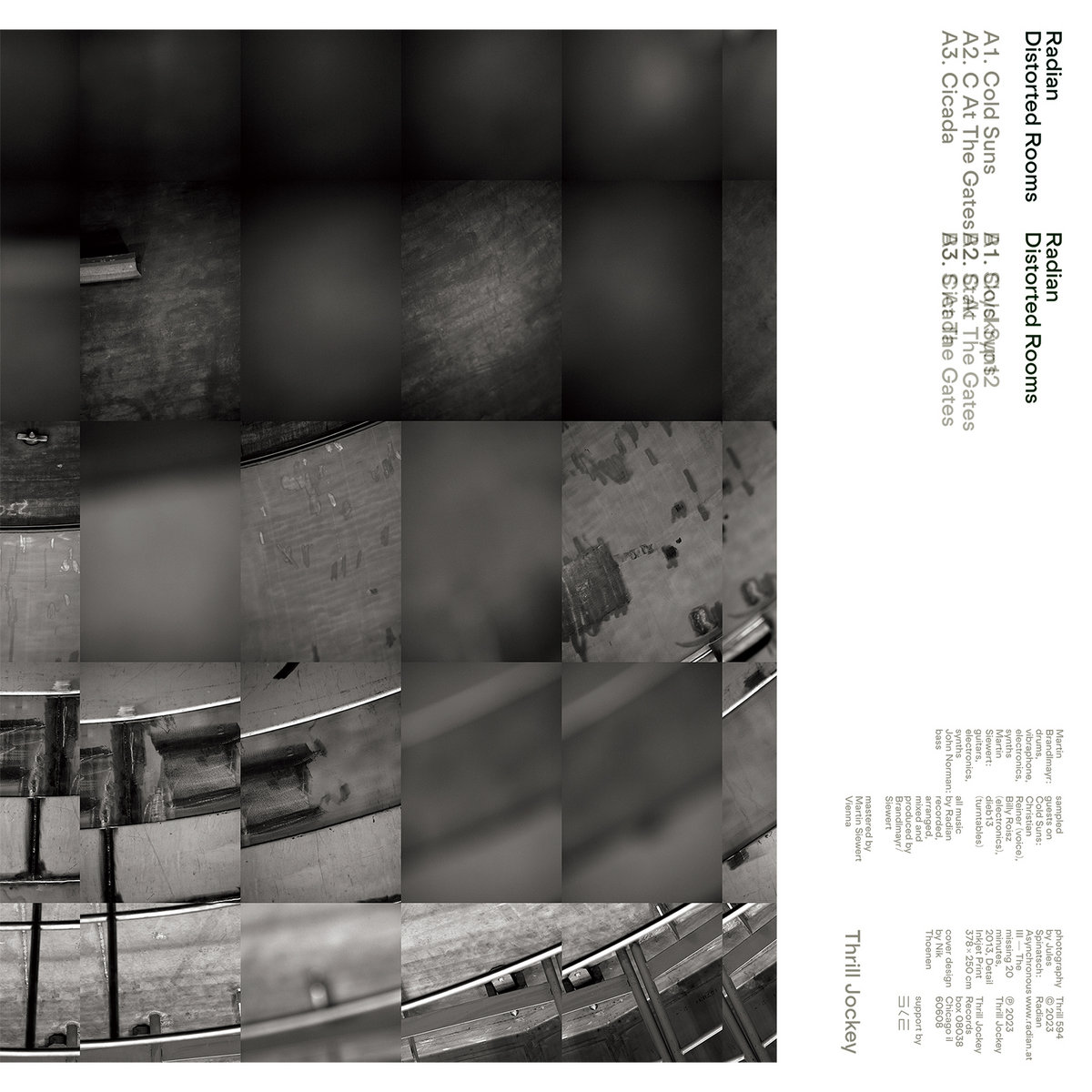 It has somehow been seven years since this long-running Vienna trio last surfaced with 2016's stellar On Dark Silent Off, but they seem to have spent that time diligently dreaming up innovative new ways to be amazing. In a general sense, Radian's vision is not a far cry from the austere, jazz-adjacent post-rock of their celebrated labelmates Tortoise. The magic of Radian, however, lies in the band's singular attention to detail and their quixotic compulsion to continually turn sounds upside-down in imaginative feats of dynamic sorcery. The overall effect is akin to that of dub techno being made by an incredibly tight live band, but the live aspect is quite illusory, as Distorted Rooms presumably sounds almost nothing like what the band originally recorded (in fact, the band themself note that one piece "eliminates nearly all traces of the original performance"). While many of the sounds do remain present in one form or another, Radian revels in celebrating and amplifying the barely audible and non-musical bits while also eliminating or burying the louder, more traditional "rock" tropes like chords and melodies. Obviously, The Dead C have made a fine career out of similarly deconstructing and inverting rock music, but Radian are the gleaming, precision-engineered opposite of Dead C's own shambling, spontaneous, and blown-out vision.
It has somehow been seven years since this long-running Vienna trio last surfaced with 2016's stellar On Dark Silent Off, but they seem to have spent that time diligently dreaming up innovative new ways to be amazing. In a general sense, Radian's vision is not a far cry from the austere, jazz-adjacent post-rock of their celebrated labelmates Tortoise. The magic of Radian, however, lies in the band's singular attention to detail and their quixotic compulsion to continually turn sounds upside-down in imaginative feats of dynamic sorcery. The overall effect is akin to that of dub techno being made by an incredibly tight live band, but the live aspect is quite illusory, as Distorted Rooms presumably sounds almost nothing like what the band originally recorded (in fact, the band themself note that one piece "eliminates nearly all traces of the original performance"). While many of the sounds do remain present in one form or another, Radian revels in celebrating and amplifying the barely audible and non-musical bits while also eliminating or burying the louder, more traditional "rock" tropes like chords and melodies. Obviously, The Dead C have made a fine career out of similarly deconstructing and inverting rock music, but Radian are the gleaming, precision-engineered opposite of Dead C's own shambling, spontaneous, and blown-out vision.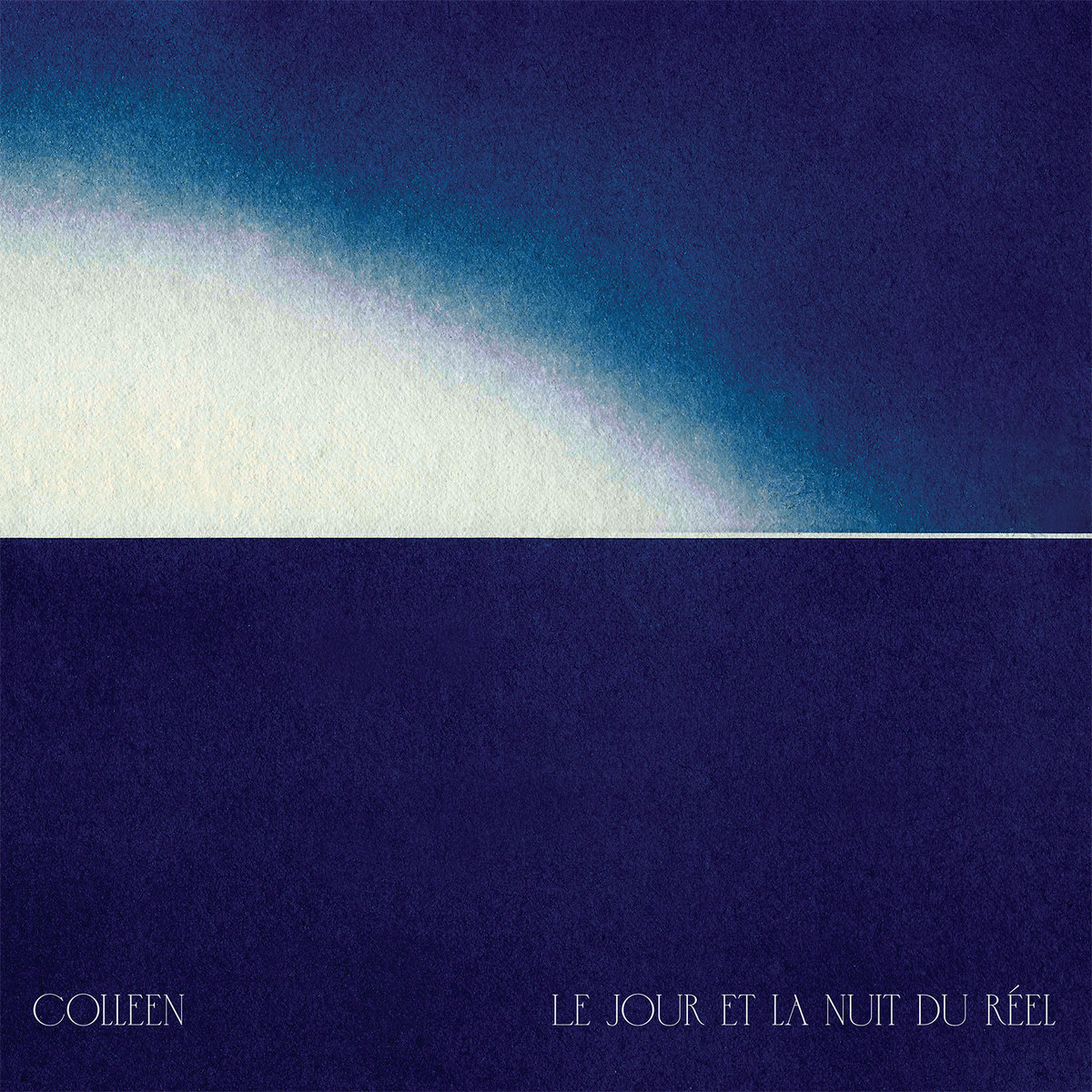 As someone who has loved Cécile Schott's work since 2003's Everyone Alive Wants Answers, I have long been fascinated by the various twists and turns that her vision has undergone over the years. While there have certainly been stretches in which she has lingered upon a vision for more than one album, Schott's creative restlessness invariably steers her into adventurous and unfamiliar territory eventually. As a result, Colleen's small discography is divided into an impressive number of distinct phases (the sample-driven collage era, the viola da gamba years, the synthesizer years, etc.). In a general sense, this latest full-length (her ninth) is a continuation her recent synthesizer phase, but it is also a significant break from her previous work in that vein: Le jour et la nuit du réel is seven-suite double album of minimalist vignettes exploring how a motif can be significantly transformed through the manipulation of synthesizer settings alone. Given the fundamental constraints of that vision, the album admittedly feels a bit less substantial than several of Colleen's previous releases, but connoisseurs of nuance and elegant simplicity will find much to love.
As someone who has loved Cécile Schott's work since 2003's Everyone Alive Wants Answers, I have long been fascinated by the various twists and turns that her vision has undergone over the years. While there have certainly been stretches in which she has lingered upon a vision for more than one album, Schott's creative restlessness invariably steers her into adventurous and unfamiliar territory eventually. As a result, Colleen's small discography is divided into an impressive number of distinct phases (the sample-driven collage era, the viola da gamba years, the synthesizer years, etc.). In a general sense, this latest full-length (her ninth) is a continuation her recent synthesizer phase, but it is also a significant break from her previous work in that vein: Le jour et la nuit du réel is seven-suite double album of minimalist vignettes exploring how a motif can be significantly transformed through the manipulation of synthesizer settings alone. Given the fundamental constraints of that vision, the album admittedly feels a bit less substantial than several of Colleen's previous releases, but connoisseurs of nuance and elegant simplicity will find much to love.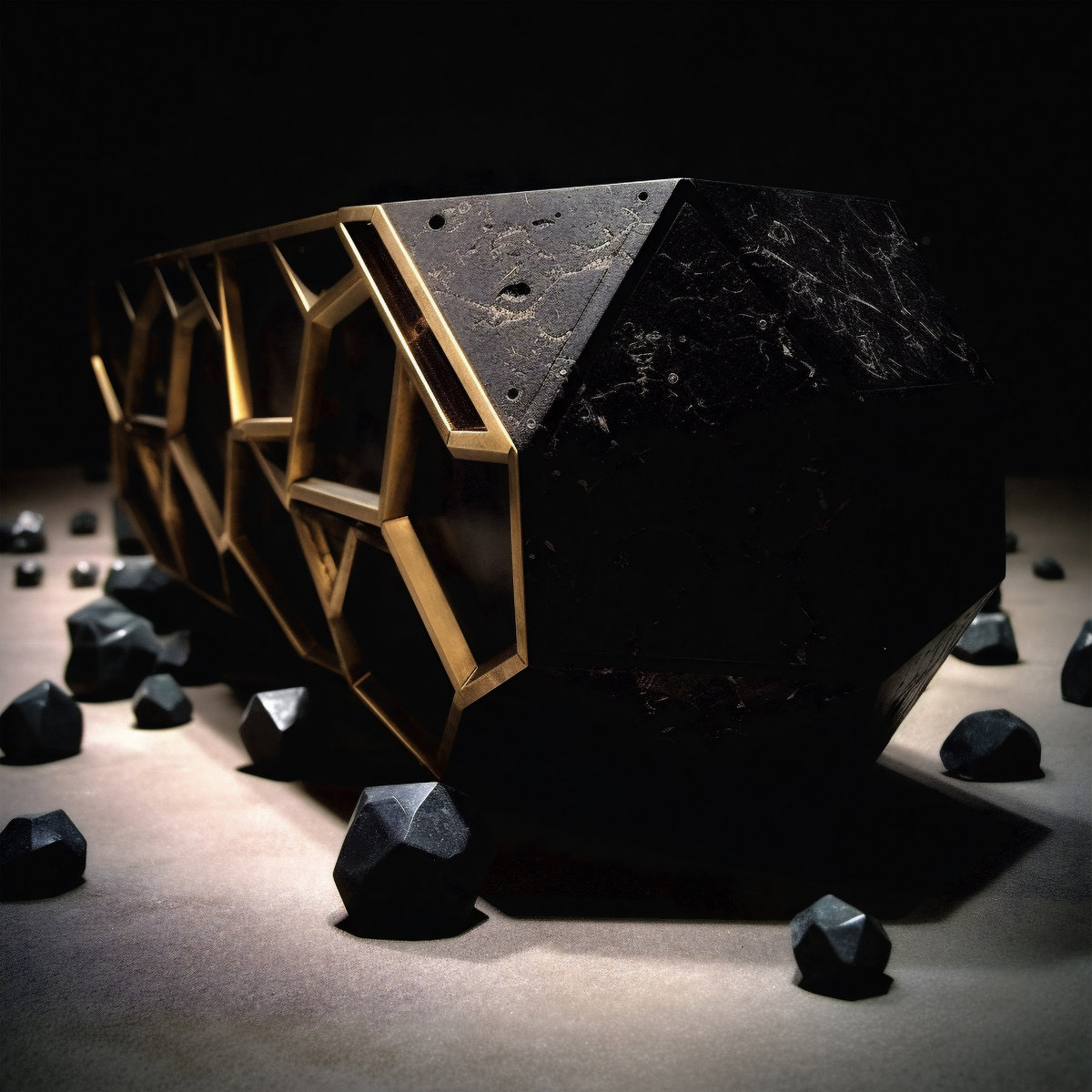 I enjoyed Nicol Eltzroth Rosendorf's gnarled, doom-soaked debut Big Other (2020) quite a bit, but I enjoyed it in a casual way and failed to truly grasp the full extent of his singular and ambitious vision. While that situation has thankfully been remedied by this latest opus, the music of Internal Return is just one piece of a much larger and more complex ambition that incorporates Jewish tradition, artificial intelligence, video art, and a uniquely disturbing visual aesthetic that resembles a vivid sci-fi nightmare that blurs together several dystopian cinematic futures at once. Curiously, when taken by itself, the music of Internal Return is more elusive and ambiguous than its more crushing and epic predecessor. When combined with Rosendorf's AI-created videos, however, Internal Return transforms into a viscerally unsettling mindfuck that will probably haunt me for weeks. As Rosendorf himself puts it: "It is not a comfortable place to be in, at least not exactly; like being adrift in an imageless dream, it produces monsters of a kind that, once they are receding into memory, we get the sense they were not actually terrifying, just... strange." Hopefully, those monsters will recede into memory for me soon, as I am still very much lingering in the "terrified" stage for now.
I enjoyed Nicol Eltzroth Rosendorf's gnarled, doom-soaked debut Big Other (2020) quite a bit, but I enjoyed it in a casual way and failed to truly grasp the full extent of his singular and ambitious vision. While that situation has thankfully been remedied by this latest opus, the music of Internal Return is just one piece of a much larger and more complex ambition that incorporates Jewish tradition, artificial intelligence, video art, and a uniquely disturbing visual aesthetic that resembles a vivid sci-fi nightmare that blurs together several dystopian cinematic futures at once. Curiously, when taken by itself, the music of Internal Return is more elusive and ambiguous than its more crushing and epic predecessor. When combined with Rosendorf's AI-created videos, however, Internal Return transforms into a viscerally unsettling mindfuck that will probably haunt me for weeks. As Rosendorf himself puts it: "It is not a comfortable place to be in, at least not exactly; like being adrift in an imageless dream, it produces monsters of a kind that, once they are receding into memory, we get the sense they were not actually terrifying, just... strange." Hopefully, those monsters will recede into memory for me soon, as I am still very much lingering in the "terrified" stage for now.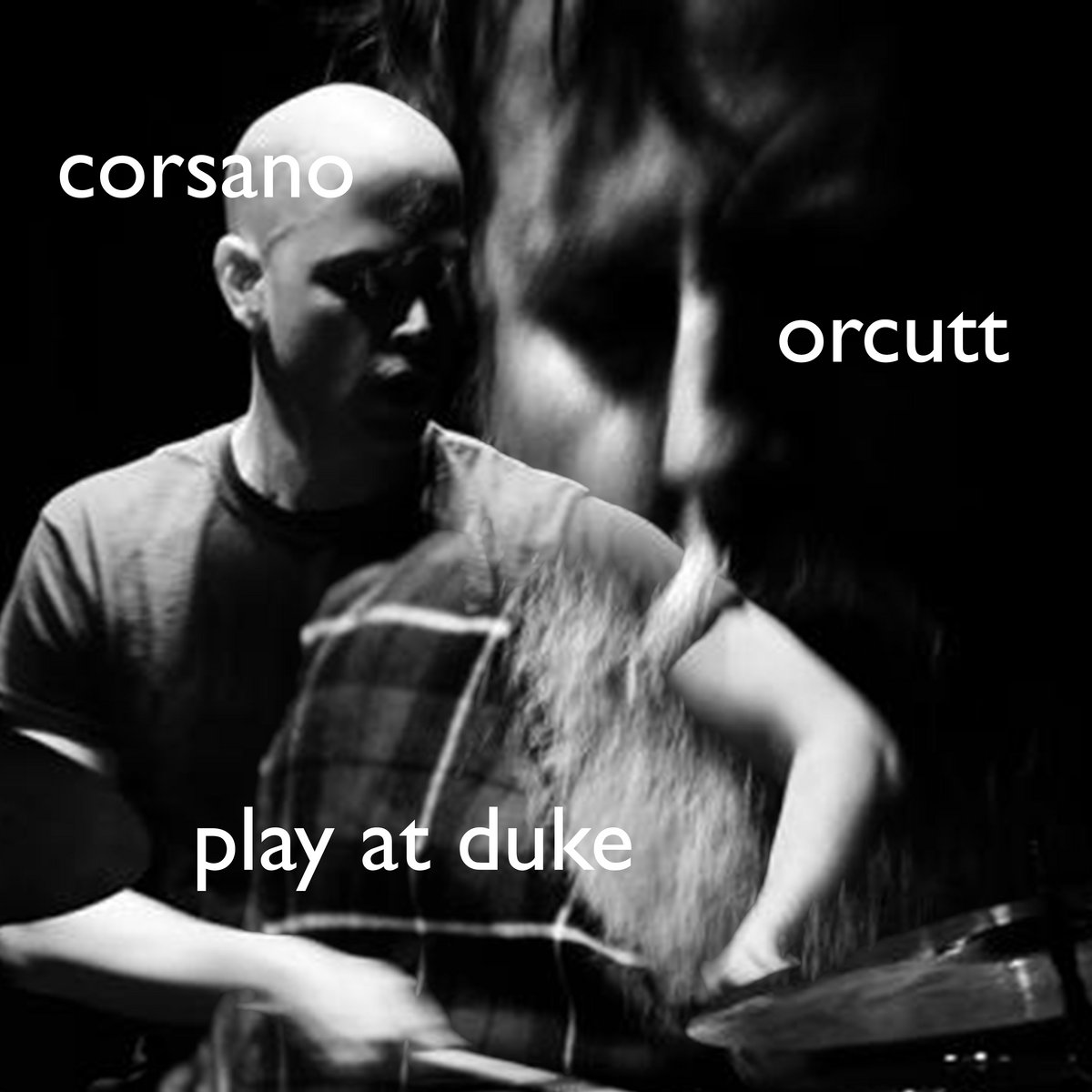 These two singular artists have been fitfully playing together for roughly a decade now and they have released a number of albums documenting their incredible duo performances. Notably, their most recent union was for 2021's absolutely killer Made Out of Sound album, but that one was a bit of an aberration for the duo, as it was a studio creation crafted remotely. Happily, Play at Duke captures the pair back together on stage where they belong. The stage in question was unsurprisingly at Duke University, but the album's prosaic title omits a rather significant detail: the performance in question closed out Three Lobed Recording's 21st anniversary festival in appropriately riveting fashion. While both artists rank among my favorite musicians and have truly incredible chemistry as an improv unit, some performances are undeniably better than others and Play at Duke feels like an especially inspired night to me. Moreover, Orcutt and Corsano make a virtue of brevity as well, as there is not a single wasted note or even a hint of a lull in this 25-minute tour de force.
These two singular artists have been fitfully playing together for roughly a decade now and they have released a number of albums documenting their incredible duo performances. Notably, their most recent union was for 2021's absolutely killer Made Out of Sound album, but that one was a bit of an aberration for the duo, as it was a studio creation crafted remotely. Happily, Play at Duke captures the pair back together on stage where they belong. The stage in question was unsurprisingly at Duke University, but the album's prosaic title omits a rather significant detail: the performance in question closed out Three Lobed Recording's 21st anniversary festival in appropriately riveting fashion. While both artists rank among my favorite musicians and have truly incredible chemistry as an improv unit, some performances are undeniably better than others and Play at Duke feels like an especially inspired night to me. Moreover, Orcutt and Corsano make a virtue of brevity as well, as there is not a single wasted note or even a hint of a lull in this 25-minute tour de force.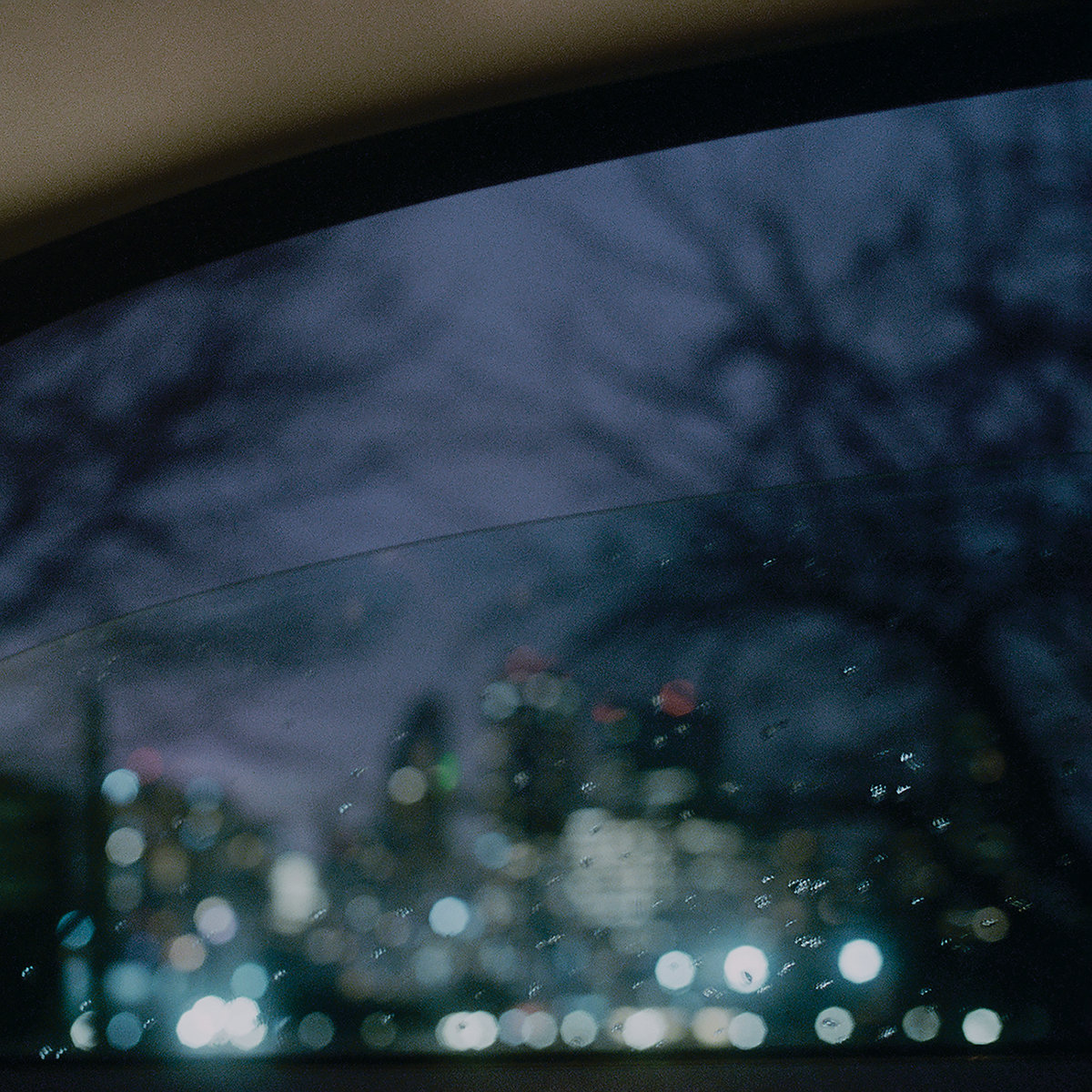 While I am a fan of both DJ Python (Brian Piñeyro) and Ana Roxanne, a collaboration between the two is not something that I would have ever foreseen happening due to the substantial gulf between their styles. Unusual circumstances can lead to unexpected places, however, and the two mutual admirers found themselves both adrift and living in NYC in 2020 ("well-loved albums aside, no one was playing shows, and a general listlessness and disconnection prevailed"). As a result, the two finally met in person and soon began working on new music together ("studio experimentation was the instinctive extension of a friendship finding its feet"). Before they could finish an album, however, circumstances changed again and Piñeyro returned to the European club scene, while Roxanne toured the world and moved back to California.
While I am a fan of both DJ Python (Brian Piñeyro) and Ana Roxanne, a collaboration between the two is not something that I would have ever foreseen happening due to the substantial gulf between their styles. Unusual circumstances can lead to unexpected places, however, and the two mutual admirers found themselves both adrift and living in NYC in 2020 ("well-loved albums aside, no one was playing shows, and a general listlessness and disconnection prevailed"). As a result, the two finally met in person and soon began working on new music together ("studio experimentation was the instinctive extension of a friendship finding its feet"). Before they could finish an album, however, circumstances changed again and Piñeyro returned to the European club scene, while Roxanne toured the world and moved back to California.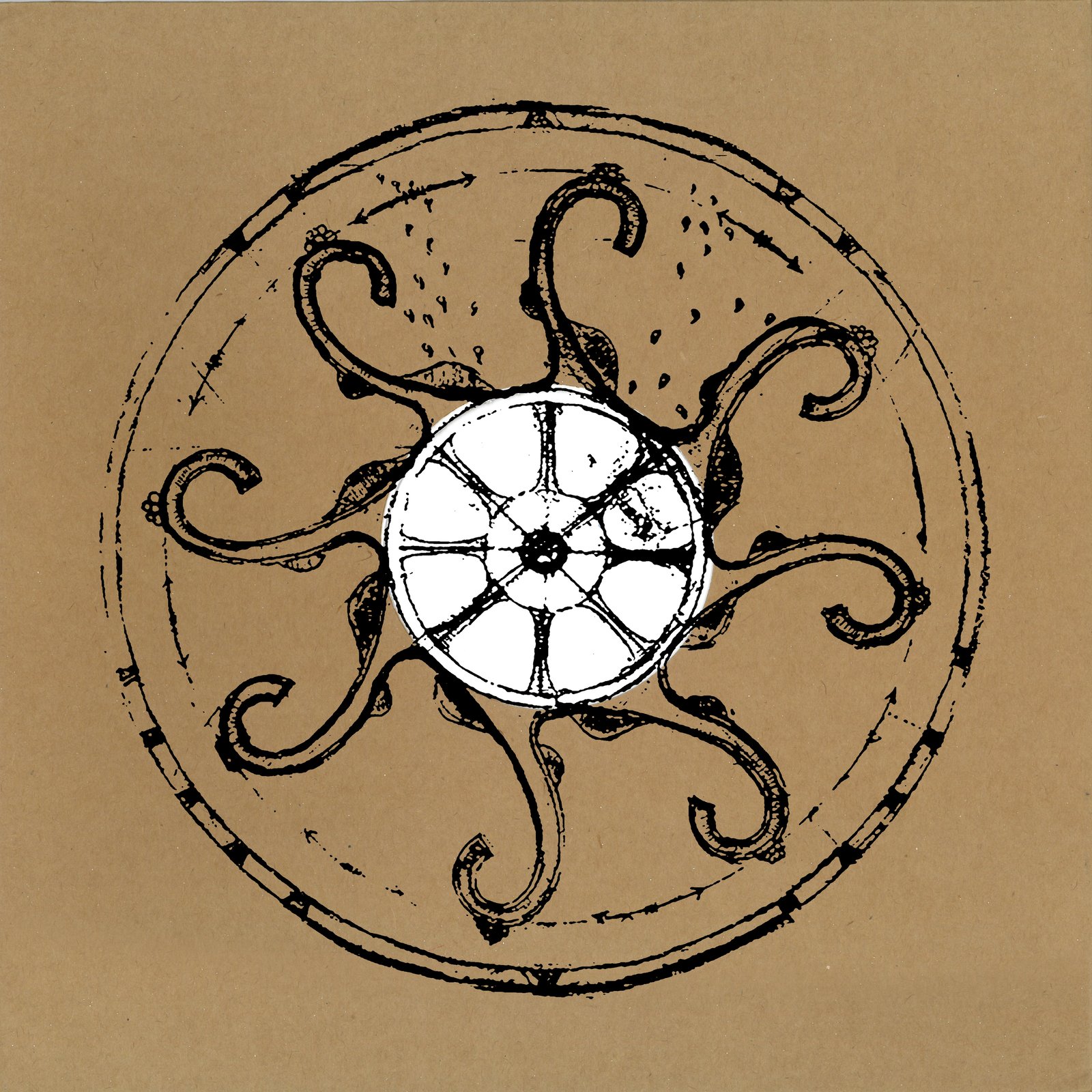 This latest collection from Folklore Tapes borrows its title from a Japanese proverb about knowing one's limitations ("the frog in the well knows nothing of the sea"), which was itself borrowed from a Chinese fable. In the context of an album devoted to UFO lore, of course, humans are the frogs, the infinite universe is the ocean, and the usual eclectic Folklore Tapes cast of characters gleefully devote themselves to celebrating the colorful hoaxes and stories of their countrymen who claim to have experienced a visit from extraterrestrial life. While alien visitations are admittedly a bit outside the usual realm of Folklore Tapes' research, I would be hard pressed to think of a roster of artists better suited to tackle the topic, as just about everyone involved brings a freewheeling playfulness to the theme and surprises abound. This is yet another characteristically brilliant and inspired compilation from the inimitable Folklore Tapes. Hell, it might even be their best yet.
This latest collection from Folklore Tapes borrows its title from a Japanese proverb about knowing one's limitations ("the frog in the well knows nothing of the sea"), which was itself borrowed from a Chinese fable. In the context of an album devoted to UFO lore, of course, humans are the frogs, the infinite universe is the ocean, and the usual eclectic Folklore Tapes cast of characters gleefully devote themselves to celebrating the colorful hoaxes and stories of their countrymen who claim to have experienced a visit from extraterrestrial life. While alien visitations are admittedly a bit outside the usual realm of Folklore Tapes' research, I would be hard pressed to think of a roster of artists better suited to tackle the topic, as just about everyone involved brings a freewheeling playfulness to the theme and surprises abound. This is yet another characteristically brilliant and inspired compilation from the inimitable Folklore Tapes. Hell, it might even be their best yet.